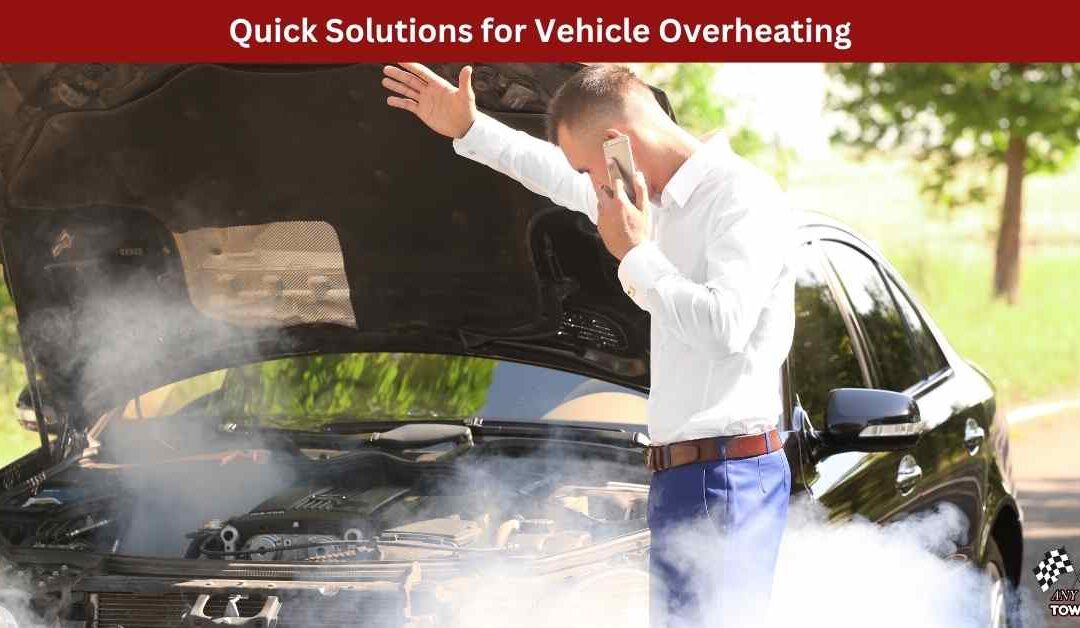Few things cause more stress on the road than seeing that temperature gauge creep into the red or spotting steam coming out from under your bonnet. Vehicle overheating can happen suddenly, and if you’re not prepared, it can turn a simple trip into a roadside nightmare. The good news? There are quick steps you can take to manage the situation safely and avoid further damage.
Why cars overheat in the first place
Engines are designed to run hot, but not too hot. Overheating usually happens when the cooling system can’t keep up. That might be because of low coolant levels, a broken thermostat, a leaking radiator hose, or even just getting stuck in stop-start traffic on a sweltering day. In Australia’s warmer months, it’s a pretty common sight.
What to do the moment your car overheats
If your car starts to overheat while driving, don’t panic—but don’t ignore it either. Acting quickly can prevent costly repairs.
- Turn off the air conditioning
Air con puts extra strain on your engine. Switching it off reduces the load and gives the cooling system a fighting chance. - Turn the heater on full blast
It sounds uncomfortable (and it is), but cranking the heater helps draw heat away from the engine. You might sweat a little, but your engine will thank you. - Pull over safely
If the temperature gauge doesn’t drop, find a safe spot to stop. Don’t try to “push through”—you risk blowing a head gasket or warping engine parts. - Switch off the engine
Give it at least 15–30 minutes to cool down before lifting the bonnet. Opening it straight away can expose you to scalding steam or hot coolant. - Check coolant levels
Once the engine has cooled, check the coolant reservoir. If it’s low, top it up with coolant or even water as a temporary fix. Just remember—never open a radiator cap when it’s hot.
Common quick fixes roadside
Sometimes, overheating is caused by something simple you can manage yourself:
- Loose or broken hoses: A quick clamp or tape job may buy you enough time to get to a mechanic.
- Low coolant: Topping up can help, though if it keeps dropping, you’ve got a leak.
- Dirty radiator fins: In dusty areas, airflow can get blocked. A quick brush-off may improve cooling.
When to call for help
If your vehicle overheats repeatedly, or you spot large puddles of coolant under the car, it’s time to call for professional help. Tow trucks are a safe bet here—continuing to drive could turn a minor fix into a full engine rebuild.
Just last summer, one of our team was called out to assist a family heading down the Great Ocean Road. Their car had overheated three times in under an hour. After topping up coolant didn’t solve the problem, we towed them to a nearby mechanic, where it turned out a water pump had failed. Catching it early saved them from major engine damage—and an even bigger bill.
Keeping cool in the future
A few preventative habits can help you avoid overheating altogether:
- Regularly check coolant and oil levels.
- Have your radiator and hoses inspected during routine servicing.
- Keep an eye on the temperature gauge, especially on hot days or long drives.
A final word to keep in mind
An overheating car is never something to ignore, but it doesn’t have to spell disaster either. With quick thinking and a few simple actions, you can keep yourself safe, protect your engine, and make sure your next call is for a fun road trip—not a breakdown.
Now Any Car Towing is available in Narre Warren Victoria 3805.
Contact Us
Any Car Towing
10 Silvergum Pl, Cranbourne VIC 3977
0413 176 223


Recent Comments